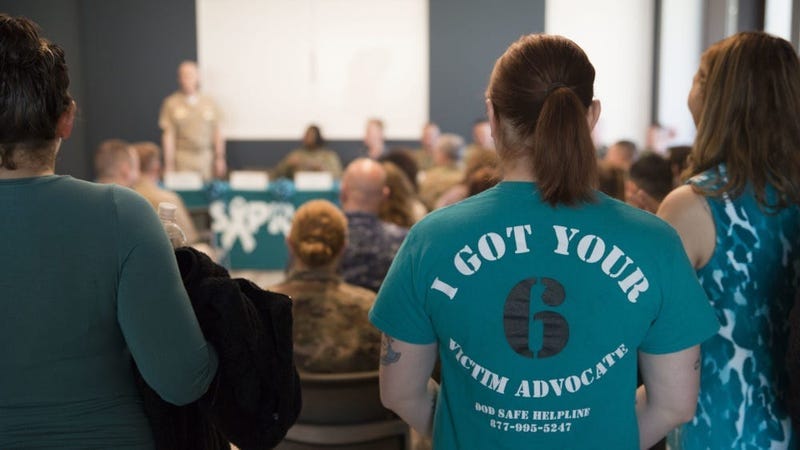
Capitol Hill lawmakers are calling on the Department of Veterans Affairs to make major policy changes to support survivors of sexual assault and harassment.
Navy veteran Rep. Elaine Luria, D-Virginia, and Army veteran Rep. Troy Nehls, R-Texas, members of the House Veterans Affairs Committee, along with committee leaders Mark Takano, D-California, and Mike Bost, R-Illinois, and other members, led a letter to VA Secretary Denis McDonough this week calling for the policy changes. Those changes include ways to help avoid retraumatizing survivors and provide support as they file claims at VA.
The six changes lawmakers requested were for VA to:
- Formalize mental health support for veterans during the claims process;
- Communicate with veteran-appointed representatives, rather than with the veteran, since some veterans choose to have a representative handle their claims to avoid further trauma;
- Update regulations establishing a definition of "technological abuse" (or a similar term referring to the use of technology to harass or stalk a person) to ensure access to healthcare and benefits for military sexual trauma survivors who experienced it;
- Bear responsibility for lost, destroyed or nonexistent records rather than placing the burden on the veteran;
- Review veteran statements before compensation and pension exams, to avoid requiring veterans to repeat their trauma;
- Established trauma-informed protocols, including language in denial letters, policies for contract examiners and more.
Those changes were drafted with feedback from MST survivors, the lawmakers said.
“Sexual harassment and sexual assault during military service are well-documented, widespread, and have only worsened since 2016,” the lawmakers wrote in the letter. “Over the past two decades, VA has established itself as a leading service provider for survivors of sexual trauma and has pioneered groundbreaking research and evidence-based practices within the Veterans Health Administration. Unfortunately, many of those practices have not carried over to the Veterans Benefits Administration, and survivors frequently find themselves at the mercy of a bureaucratic process that can be retraumatizing and triggering for survivors.”
The VA benefits application process can be complicated and convoluted and often requires survivors to tell and re-tell their stories. And under current policies, survivors receive no formal mental health support during the process.
"The veteran applying for benefits is asking a government agency to validate that a traumatic event happened to them, when, in many cases, institutionalized traumatic invalidation during the veteran’s service is part of why the veteran is seeking benefits in the first place," lawmakers wrote.
Veterans and VA visitors who experience harassment or assault can report to patient advocates, VA police and the Women Veterans Call Center. Call or text 1-855-VA-WOMEN. Employees can report to the Harassment Prevention Program, VA police or the Disruptive Behavior Reporting System. Call 1-888-566-3982, option 3.
If you or someone you know is a victim of sexual harassment or assault, call the National Sexual Assault hotline at 800-656-HOPE or chat online at online.rainn.org.
—
Reach Abbie Bennett: abbie@connectingvets.com or @AbbieRBennett.
Sign up for the Connecting Vets weekly newsletter to get more stories like this delivered to your inbox.



